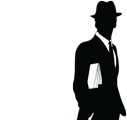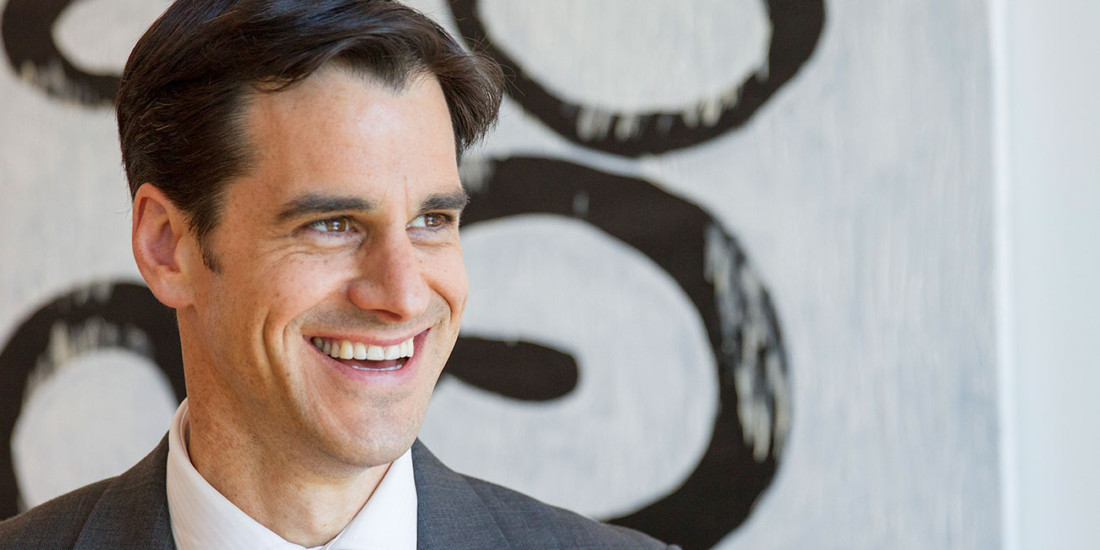Mark McCrindle, social researcher
We're in the midst of one of the most transformative periods of history ...
It’s a staggering statistic to get our noggins around, but every day 2.5 quintillion bytes of data are produced around the world. While the raw numbers may seem irrelevant to many of us at first glance, the collected information is vital to tracking trends, identifying changes and forecasting new developments to help us understand ourselves, our pasts and our futures. What were the biggest trends of 2014? How has Australia changed over the past few decades? And how will we evolve over the next 12 months? These are just some of the questions that consume social researcher, demographer and futurist Mark McCrindle, who has dedicated his life’s work to studying and understanding our nation. As we head into the new year, The Weekend Edition thought it was perfect timing to catch up with the futurist and chat about what lies ahead.
In your 2013 TEDxCanberra talk, you said it’s rare for factors like massive technological change, rapid demographic shifts, huge social trends and ongoing generational change to all happen at the same time – meaning big changes can happen within a short period. Can you talk us through some of the major trends you observed in 2014?
I think we’re in the midst of one of the most transformative decades ever. It’s this decade that began with the tablet computer, social media becoming mainstream, the smartphone and apps – these were words that weren’t known and technologies that weren’t around when the decade began and now here we are, halfway through it in 2015 and it’s obviously going to take us through to 2020, which has always been that iconic year of ‘the future’. As you say, it’s change in terms of those broader areas, not just technology, but also generational change – this year we’ve got Baby Boomers turning 70 and the original ‘youth slackers’ Gen Xers turning 50 and the new Gen Alphas coming of age – as well as economic change – the decade began with the ripples of the GFC and that’s still having an impact. So economically, technologically, sociologically, generationally and attitudinally, there have been lots of changes. It’s rare that you do get the confluence of such change that we’re seeing at the moment.
What can you tell us about this new generation born 2010 or later, known as Gen Alpha?
We’ve given them the label ‘Generation Glass’ because the key medium for them on which they’ll learn, interact, write and get their content isn’t paper – it’s glass. This is the first generation that has utilised glass as the mainstream form of communication and content delivery. It’s portable, it’s in their pockets or on their wrists or on their interactive desktops, it’s in showrooms as interactive touch screens – glass is everywhere. It comes to life, it’s connected to the internet and it displays content – and this is the generation that will only know that. Paper first emerged as a portable form of mass communication when Gutenberg came up with his printing press in 1439, so we’ve had to wait 600 years for a new medium.
And for 2015 you’ve also predicted that we’ll become a more reflective country?
Yes, the technologies of the internet have been around for a while now and so far it’s been fun and light – people Instagramming every meal they eat, the tweets and YouTube videos have been fun and fickle, and memes like Grumpy Cat have gone viral. But that happens when anything new emerges, it’s fun before we find the real usefulness of it. And now we’re getting a little bit more pragmatic and people are saying, ‘I want some life tools’, ‘I want connection tools that will actually help’, ‘I want relational functionality rather than random Facebook friends’ so we’re starting to see fragmentation of that, from LinkedIn through to a rise in openness for people to talk about not just the financial or physical areas of life, but also mental, emotional and spiritual. I think this reflection, the focus on work/life balance and family, as well as spirituality and emotional wellbeing is a sign that we’re a bit more transparent and open. As Australians, we’ve always been a ‘She’ll be right mate’ sort of nation, but I think we’re recognising that to be a bit more vulnerable, transparent and authentic is actually important.
What have you observed about Queensland and its capital of Brisbane?
Queensland is unique in its demographics – it’s the only state in Australia that has more than half of its population living outside of its capital. So if you look at NSW or Victoria, more than three in four people live in the capital city, but in Queensland, 4.8 million people live in the whole state and just 2.2 million people live in Brisbane. In fact, we have an infographic where we look at the largest 30 cities of Australia, and Queensland has the most with 10 cities, compared to NSW which has just five. The point is Queensland has more of a mix of the urban and rural, it has a bigger focus on the regional, it’s a big state and a big coastline, and has more of a spread of population outside of Brisbane – and that creates a different mode in itself. It’s one of the fastest-growing states, and faster than the national average. Queensland has a different attitude and way of life; it’s got some unique demographic aspects that create the culture and the mood, and continue to shape it.
Let’s rewind the clock a bit – have you always harboured such an interest in human behaviour? As a child, did you even know a job like this existed?
That’s right, social researcher, futurist and demographer aren’t often what the careers advisor has on their shortlist; they’re not mainstream pursuits. But I did always have an interest in people and when I was filling in my applications at the end of year 12 to figure out what to study at uni, it was psychology and sociology that interested me. As I moved through my psych degree, I realised that I far preferred the social psychology subjects rather than the clinical, and that’s when I transitioned towards understanding people and society, and how we think and why we as communities or groups make decisions the way we do. So I’ve always had a fascination with people and I guess that’s really what my role is to this day – observing people and communities, and analysing trends and changes.
What were the greatest challenges in launching your own research agency and advisory firm?
Well not only is it an unusual role and hard enough to find a niche as an individual social researcher and analyst, but then to start a business in the area you really need to find your strengths and carve a niche that’s going to add value.
How did you overcome these?
What’s been key is that all of the team here are generally passionate in understanding Australia and society and changes and trends and generations and people’s behaviour. Secondly, how we deploy that information has been important. I looked around when I was starting and thought there’s got to be a better way of conducting the research – it can’t just be about focus groups and surveys, there’s got to be other ways of understanding people. What we’re about is making the unknown known and making the complex clarified, and we employ whatever methodologies will help do that so people can make a difference in what they do. The second part in trying to be innovative in research approach is being innovative in the output methods, so we work hard on the visualisation of content, developing infographics and animated videos.
And what have been the greatest rewards – what do you love about your job?
I love that the craft is so interesting. To be presented with a challenge where an organisation says, ‘We want to connect with and understand this new generation or emerging segment, or we want to find out if this concept will work’, and help them understand and prepare for what isn’t yet certain, is quite fun. To help these organisations, government agencies and not-for-profits really be equipped and empowered in what they do, to do it more efficiently and future-proof themselves, is fun to do but also very rewarding and a privilege.
What inspires you to keep doing what you’re doing?
It’s exciting to see the difference that we can make and we have a view that if people take a broader perspective of what they do, they’ll do it more effectively. We tend to focus on our business or our role or our community – the micro-view – but what we need to do is understand the context in which we’re operating and look outside the walls of our home or organisation, and look at the broader winds of change – the demographics, the social trends, the attitudes, the shift in international demographics. When we understand that, it helps us to be a bit more effective in positioning ourselves to surf the waves of change and remain relevant to the future. The other lens change we need to make isn’t just looking at the now, but looking to the future so we can prepare for that. We tend to focus on the immediate term but the times are changing so quickly we almost need to look ahead a few years to see where things might be headed and position ourselves now to thrive in these times of change.

